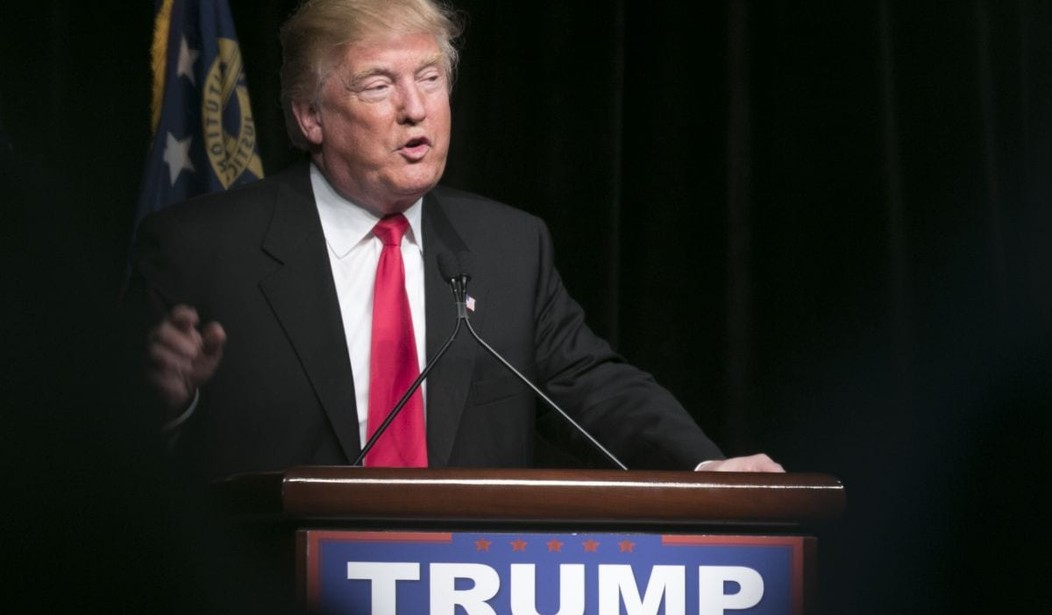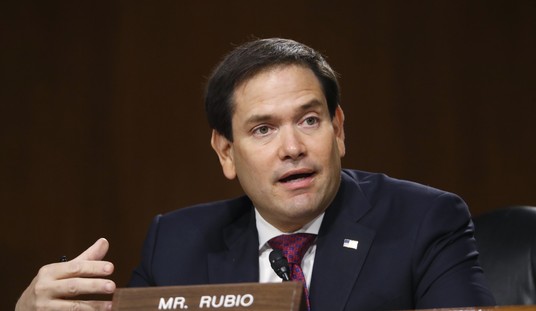With Donald Trump poised to sweep the Super Tuesday primaries and put a death grip on the nomination, the Republican donor class is beginning to panic. Some GOP donors have engaged a Florida firm to research options for putting forward an independent to run in the fall against Trump and presumably, Hillary Clinton.
A memo prepared for the group zeroes in on ballot access as a looming obstacle for any independent candidate, along with actually identifying a viable, widely known contender and coalescing financial support for that person. The two states with the earliest deadlines for independent candidates, Texas and North Carolina, also have some of the highest hurdles for independents to get on the ballot, according to the research.
“All this research has to happen before March 16, when inevitably Trump is the nominee, so that we have a plan in place,” a source familiar with the discussions said. March 16 is the day after the GOP primary in Florida, a winner-take-all contest that Marco Rubio supporters have identified as a must-win to stop Trump’s early momentum.
“It’s critical some serious attention is given to this,” the source said.
The document, stamped “confidential,” was authored by staff at Data Targeting, a Republican firm based in Gainesville, Fla. The memo notes that “it is possible to mount an independent candidacy but [it] will require immediate action on the part of this core of key funding and strategic players.”
Data Targeting did not respond to a request for comment on the memo.
The research points to Texas and North Carolina as early tests for running an independent, conservative candidate against Trump and the Democratic nominee. The candidate would need to gather over 79,900 valid petition signatures in Texas by May 9 and over 89,000 in North Carolina by June 9.
Only two other states have thresholds that high, and gathering petitions can be an expensive and time-consuming process. What’s more, the Texas signatures would have to come entirely from voters who did not vote in this year’s Democratic and Republican primaries.
But “with 38 electoral votes in play in Texas and North Carolina’s true swing state status, failing to qualify in either or both states would render any independent candidate non-viable,” the report’s authors wrote. “This is logistically possible but will require immediate action.”
The Republican Party has been shaken to its core by Donald Trump’s candidacy. Politico analyzes what that means for the growing factionalism in the party:
The populist billionaire’s rise to the pinnacle of Republican politics has upended what had been decades of relative GOP stability, a 40-year span in which most Republican presidential contests since 1976 neatly narrowed to an establishment-embraced front-runner and a conservative insurgent alternative.
No more.
Suddenly, there are three strands of Republicanism, each entrenched and vying for supremacy in 2016. Ted Cruz is the leader of the traditional conservative purists. Marco Rubio is emerging from the mud of a multicandidate brawl to lead the once-dominant, now diminished, mainstream lane of the GOP.
But it is Trump’s new alliance of angry populists that is ascendant — and on the precipice of dominance.
Built on the backs of working-class men and women who feel abandoned, economically and culturally, Trump’s coalition has both brought in new voters and carved out support from the other two. Trump won over evangelicals from Cruz in South Carolina, and even more resoundingly again in Nevada. He then took moderates from the mainstream in New Hampshire and Nevada en route to landslide victories in three consecutive states.
“What Trump is consolidating is the people who are unhappy being in either camp — those who don’t see themselves as conservative insurgents or as mainstream Republicans,” said Yuval Levin, an influential Republican thinker and editor of the quarterly conservative journal National Affairs. “They’re insurgents but they’re not conservatives. And they’re not happy with the system that gave us that binary choice.”
The GOP will probably survive Donald Trump but as a muich diminished political party, unrecognizable from what it’s been over the last half century. This is what has big donors worried. They fear that Trump’s presence at the top of the ticket will cost them at least the Senate in 2016 and eventually, the House.
But many Trump supporters — and to a certain extent, Cruz backers — see the destruction of the establishment as a positive good. The party will shrink, but what’s left will be purer — a distillation of resentments that resonate with many blue-collar, middle-class Americans. It will be interesting to see how competitive that Republican Party will be going forward.










Join the conversation as a VIP Member